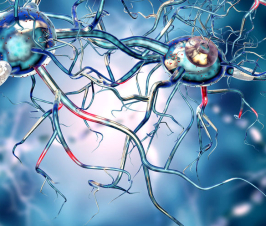Do you experience abdominal discomfort, gas and bloating after you eat? Do you go longer than 24 hours between bowel movements? Are your stools hard to pass and pebble-like? Do your bowel movements alternate between diarrhea and constipation? If so, then read on because you don’t have to suffer.
There are many reasons for gastric disturbance, but the most prevalent cause is a disruption in the balance of the microbes (bacteria, yeast, and other microorganisms, collectively known as the microbiome) in the digestive tract. This is no surprise because there are more than 100 trillion microorganisms that live in our gastrointestinal tract, on our skin and elsewhere in our bodies. In fact, the total number of genes that make up the human microbiome outnumbers the total number of human genes by a factor of 100-to-one so it’s no wonder that microbial imbalances would lead to dis-ease. Microbiome imbalances can be caused by:
- Lack of exposure to beneficial microbes: Infants obtain bacteria from their mother during the birth process and via breastfeeding. C-section delivery and formula feeding impede the natural transfer of bacteria from the mother to the infant. Women who have taken antibiotics before giving birth can also pass on pathogenic bacteria to their infants rather than a healthy array of beneficial bacteria. Children who grow up in extremely hygienic conditions have less exposure to microbes so their immune system becomes hyper-reactive as compared to children who grow up on farms where the exposure to dirt and animal microbes allows their immune system to attain a higher tolerance so they have fewer allergies.1,2,3
- Stress: Hormones produced under stress lower the levels of good bacteria and increase inflammation of the digestive tract lining. In addition, stress diverts the body’s processes away from the process of digestion, allowing foods to remain in the digestive tract longer. Microbial digestion of food (otherwise known as fermentation) results in gas and bloating in addition to overgrowth of unfavorable microbes.4,5,6
- Food allergies: If your body is reacting to the foods you eat, your entire digestive tract can be inflamed. This can lead to “leaky gut”, which has been correlated with increased incidence of autoimmune conditions, in which the immune system starts attacking one’s own body.7
- Antibiotic Exposure: Overuse of antibiotics has led to antibiotic-resistant bacteria as well as a reduction in beneficial bacteria in the body. University studies have shown that antibiotics also destroy the cells that line the intestine, which results in disruption of nutrient absorption.8
- Acid-suppressing medications: Stomach acid is important for several reasons, including destruction on ingested microbes, breaking down proteins for absorption and stimulating the release of digestive enzymes from the pancreas. By buffering or blocking production of hydrochloric acid, antacids, (Tums) anti-histamines (cimetidine, famotidine, nizatidine and ranitidine) and protein pump inhibitors (omeprazole (Prilosec), lansoprazole (Prevacid), and omeprazole/sodium bicarbonate (Zegerid), pantoprazole (Protonix)) prevent these important processes and create an environment that favors the development of microbial imbalances. Long-term use of these drugs can lead to nutritional deficiencies, increased inflammation, osteoporosis, neurotransmitter imbalances, and impaired metabolism.9,10
- Environmental Toxin Exposure: Toxins from the environment can destroy gut bacteria and lead to chronic diseases, such as diabetes and obesity. Glyphosate, the active ingredient in the herbicide Roundup, disrupts the biosynthesis of amino acids, alters the balance between pathogens and beneficial biota in the gut, impairs absorption of important nutrients such as sulfur and selenium, and inhibits an important detoxification pathway in the liver. Recent studies have shown the growing problem of celiac disease and gluten intolerance can be attributed to glyphosate in our foods. Glyphosate is just one example of a chemical that has been shown to have detrimental consequences to health. Since the industrial revolution, thousands of chemicals have been introduced in our air, water, food supply and homes. Unfortunately, the burden of proof for safety is forced upon the living beings that inhabit this planet rather than the companies that produce the chemicals.11,12
- Eating a Standard American Diet (SAD): A diet high in sugar, refined carbohydrates, processed foods, unhealthy fats and antibiotic/hormone-laden meat and low in fresh organic vegetables and naturally fermented foods results in extreme imbalances of gut microbes. Consumption of artificial sweeteners, such as Splenda, has been shown to cause a significant reduction of beneficial bacteria.13,14
Methods of evaluation
Since the gastrointestinal tract is a complicated organ system, testing for microbiome imbalances involves evaluation of a patient’s thorough medical history and current symptoms, as well as past treatments and outcomes to determine appropriate testing.
Symptoms of indigestion, gas/bloating, burning or discomfort in the upper abdominal area that is made better or worse by eating and/or a positive fecal occult blood stool test, warrant testing for Helicobacter pylori overgrowth. H. pylori is a bacteria that inhabits the stomach of most humans and is the organism that is responsible for the development of ulcers if conditions allow overgrowth. The urea breath test is used to diagnose H. pylori. Several antibiotics are used to eradicate the organism and herbal products can be used to help heal the gut tissue. It’s extremely important to address the cause of the imbalance of H. pylori so that overgrowth does not re-occur. Food allergies/intolerances and prolonged stress are common causes of inflammation, which can lead to bacterial imbalances in the stomach. Acid-suppressing drugs can result in H. pylori overgrowth, resulting in increased nitrites and N-nitroso compounds (NOCs), which have been associated with inflammation in the stomach gastritis.15
Small intestinal bowel overgrowth (SIBO) is an overgrowth of bacteria in the small intestine. SIBO can result from chronic constipation; food-borne illnesses; consumption of foods, such as sugar and refined carbohydrates that support growth of unfavorable microbes; and/or impaired digestion of foods. Symptoms of SIBO include gas/bloating, flatulence, belching, abdominal pain, constipation, diarrhea, heartburn, and nausea. SIBO may be the cause of irritable bowel symptoms if the following indicators are present: symptoms are made worse by consuming fiber or probiotics that contain prebiotics; patients with celiac do not improve with gluten-free diets; symptoms improve after a course of antibiotics; or if use of opiates causes constipation. The diagnostic method for SIBO is the hydrogen/methane breath test. Antibiotics, herbal medicine, and specific food types can help to rebalance the microbes and eliminate overgrowth if testing is positive.16
A Comprehensive stool analysis (CSA) can be used to assess overall gastrointestinal health. CSA can provide information regarding digestive enzyme function and effectiveness and microbial inhabitants of the large intestine. Microscopic analysis of stool can identify meat or vegetable fibers, which indicates of improper digestion. Macroscopic exam may also identify a parasitic infection. Presence of fecal fats can indicate impaired transit time, insufficient absorption or lack of enzymes or bile acids. Symptoms indicating a CSA is needed to evaluate gut health include diarrhea, constipation, indigestion, excessive flatulence, nausea, reflux, and suspicion of leaky gut.17
Summary
If you are suffering with digestive complaints, it’s important to see a doctor who is knowledgeable about the various causes of discomfort as well as alternative labs so that microbial imbalances can be identified and treated properly. Many naturopathic doctors focus on gut health because the ability to digest, absorb and utilize nutrients is the basis of health.
Of course there are other conditions, such as food allergies/intolerances, pancreatic insufficiency, insufficient bile acids, impaired liver function, diverticulosis and cancer can lead to abdominal discomfort. Today’s lifestyle and standard practices have created the most common cause of gastric distress – microbiome imbalance. If you are suffering with gastrointestinal distress, it’s important to identify what is causing your discomfort because food sensitivities, toxin exposure, and microbial imbalances can lead to chronic disease, including autoimmune disease, arthritis, chronic fatigue, fibromyalgia, and cancer.
 Cheryl Hamilton, NMD, began her career in healthcare 30 years ago. She earned a B.S. degree in nutrition, worked in the health and fitness industry, and raised four children before attending the Southwest College of Naturopathic Medicine to become a naturopathic medical doctor. She practices at the Women’s Health and Healing Center in Prescott Valley, Arizona. Dr. Hamilton is passionate about assisting women and their loved ones to improve health and wellbeing. She has extensive background in gastrointestinal health, weight management, bio-identical hormone therapy, treatment of premenstrual syndrome (PMS)/ premenstrual dysphoric disorder (PMDD), polycystic ovary syndrome (PCOS), cervical dysplasia and sexual dysfunction. Dr. Hamilton is the only practitioner in the Quad Cities area of Northern Arizona to offers platelet rich plasma (PRP) injection therapy (known as the O-shot®), in the treatment of female sexual dysfunction and urinary stress incontinence. Dr. Hamilton also utilizes PRP for skin rejuvenation therapies (wrinkle reduction, scar therapy and hair regrowth) because she knows that how a woman feels about her outward appearance strongly influences her mental and physical health. When she’s not seeing patients, Dr. Hamilton loves gardening, healthy cooking, and hiking.
Cheryl Hamilton, NMD, began her career in healthcare 30 years ago. She earned a B.S. degree in nutrition, worked in the health and fitness industry, and raised four children before attending the Southwest College of Naturopathic Medicine to become a naturopathic medical doctor. She practices at the Women’s Health and Healing Center in Prescott Valley, Arizona. Dr. Hamilton is passionate about assisting women and their loved ones to improve health and wellbeing. She has extensive background in gastrointestinal health, weight management, bio-identical hormone therapy, treatment of premenstrual syndrome (PMS)/ premenstrual dysphoric disorder (PMDD), polycystic ovary syndrome (PCOS), cervical dysplasia and sexual dysfunction. Dr. Hamilton is the only practitioner in the Quad Cities area of Northern Arizona to offers platelet rich plasma (PRP) injection therapy (known as the O-shot®), in the treatment of female sexual dysfunction and urinary stress incontinence. Dr. Hamilton also utilizes PRP for skin rejuvenation therapies (wrinkle reduction, scar therapy and hair regrowth) because she knows that how a woman feels about her outward appearance strongly influences her mental and physical health. When she’s not seeing patients, Dr. Hamilton loves gardening, healthy cooking, and hiking.
References:
- Josef Neu, MD and Jona Rushing, MD. Cesarean versus Vaginal Delivery: Long term infant outcomes and the Hygiene Hypothesis. Clin Perinatol. 2011 Jun; 38(2): 321–331. Available at:http://www.ncbi.nlm.nih.gov/pubmed/21645799
- C. Urbaniak, J. Cummins, M. Brackstone, J. M. Macklaim, G. B. Gloor, C. K. Baban, L. Scott, D. M. O’Hanlon, J. P. Burton, K. P. Francis, M. Tangney, G. Reid. Bacterial microbiota of human breast tissue. Applied and Environmental Microbiology, 2014; Available at: http://aem.asm.org/content/80/10/3007
- A. Morgun, A. Dzutsev, X. Dong, R. L. Greer, D. J. Sexton, J. Ravel, M. Schuster, W. Hsiao, P. Matzinger, N. Shulzhenko. Uncovering effects of antibiotics on the host and microbiota using transkingdom gene networks. Gut, 2015; DOI: 10.1136/gutjnl-2014-308820. Available at: http://www.ncbi.nlm.nih.gov/pubmed/25614621
- Andre G. Buret. How Stress Induces Intestinal Hypersensitivity. Am J Patholv.168(1); 2006 JanPMC1592668. Available at: http://www.ncbi.nlm.nih.gov/pmc/articles/PMC1592668/
- Sang H. Rhee, Charalabos Pothoulakis, and Emeran A. Mayer. Principles and clinical implications of the brain–gut–enteric microbiota axis. Nat Rev Gastroenterol Hepatol. 2009 May; 6(5): 10.1038/nrgastro.2009.35. Available at: http://www.ncbi.nlm.nih.gov/pubmed/19404271
- Bhatia V1, Tandon RK. Stress and the gastrointestinal tract. J Gastroenterol Hepatol. 2005 Mar;20(3):332-9. Available at: http://www.ncbi.nlm.nih.gov/pubmed/15740474
- Jeroen Visser,a Jan Rozing,a Anna Sapone,b Karen Lammers,b and Alessio Fasanob. Tight Junctions, Intestinal Permeability, and Autoimmunity Celiac Disease and Type 1 Diabetes Paradigms. Ann N Y, Available at: Acad Sci. 2009 May; 1165: 195–205.
- Unwanted impact of antibiotics broader, more complex than previously known. 02/10/2015. Oregon State University. Available at: http://oregonstate.edu/ua/ncs/archives/2015/feb/unwanted-impact-antibiotics-broader-more-complex-previously-known <http://oregonstate.edu/ua/ncs/archives/2015/feb/unwanted-impact-antibiotics-broader-more-complex-previously-known>
- JAMA and Archives Journals. “Risks associated with common acid-suppressing medications documented in series of studies.” ScienceDaily. ScienceDaily, 11 May 2010. Available at:www.sciencedaily.com/releases/2010/05/100510161248.htm
- Jameson R. Lam; Jennifer L. Schneider; Wei Zhao; Douglas A. Corley, MD, PhD. Proton Pump Inhibitor and Histamine 2 Receptor Antagonist Use and Vitamin B12 Deficiency. JAMA. 2013;310(22):2435-2442.doi:10.1001/jama.2013.280490. Available at: http://www.ncbi.nlm.nih.gov/pubmed/24327038
- Suzanne M. Snedeker and Anthony G. Hay. Do Interactions Between Gut Ecology and Environmental Chemicals Contribute to Obesity and Diabetes? Environ Health Perspect. 2012 Mar; 120(3): 332–339. Published online 2011 Oct 31. doi: 10.1289/ehp.1104204 <http://dx.doi.org/10.1289%2Fehp.1104204>. Available at: http://www.ncbi.nlm.nih.gov/pmc/articles/PMC3295356/
- Anthony Samsel and Stephanie Seneff. Glyphosate, pathways to modern diseases II: Celiac sprue and gluten intolerance. Interdiscip Toxicol. 2013; Vol. 6(4): 159–184. doi: 10.2478/intox-2013-0026. Available at: http://www.ncbi.nlm.nih.gov/pubmed/24678255
- Abou-Donia, El-Masry, Abdel-Rahman, McLendon, Schiffman. Splenda alters gut microflora and increases intestinal p-glycoprotein and cytochrome p-450 in male rats. J Toxicol Environ Health A. 2008;71(21):1415-29. doi: 10.1080/15287390802328630. Available at: http://www.ncbi.nlm.nih.gov/pubmed/18800291
- Kirsty Brown, Daniella DeCoffe, Erin Molcan, and Deanna L. Gibson. Diet-Induced Dysbiosis of the Intestinal Microbiota and the Effects on Immunity and Disease. Available at: Nutrients. 2012 Aug; 4(8): 1095–1119.
- Naylor G, Axon A. Role of bacterial overgrowth in the stomach as an additional risk factor for gastritis. Can J Gastroenterol. 2003 Jun;17 Suppl B:13B-17B. Available at:http://www.ncbi.nlm.nih.gov/pubmed/12845343
- Steven Sandberg-Lewis, ND, DHANP, Allison Siebecker, ND, MSOM. SIBO: Dysbiosis Has A New Name. Townsend Letter, Feb/Mar2015. Available at:http://www.townsendletter.com/FebMarch2015/sibo0215.html
- Jason Barker, ND. A Basic Review of a Clinically Enlightening Test: The Comprehensive Stool Analysis. ProThera, Inc Practitioner Newsletter. Jan2015. Pg 8-9.

















